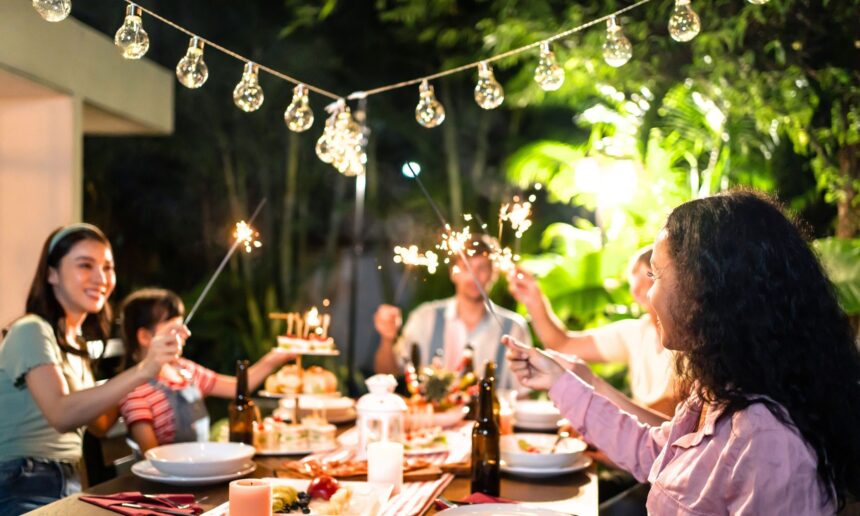The maple sugar shack season opened early this year across Quebec, but Lise Trudel wasn’t celebrating. The 72-year-old grandmother had been organizing her family’s annual cabane à sucre gathering for decades, a tradition that spans four generations. Last year, she considered stopping altogether.
“I wondered if the young ones even cared anymore,” Trudel told me during a community forum in Gatineau. “Everyone’s so busy with their phones and work. But when I suggested skipping it, my grandson actually cried.”
What Trudel discovered mirrors what researchers are now confirming through emerging studies: our connection to cultural traditions isn’t just about preserving the past – it’s fundamentally linked to our mental wellbeing.
New research published in the Journal of Cross-Cultural Psychology reveals that people who actively participate in their cultural traditions report significantly higher levels of psychological wellbeing and resilience against mental health challenges. The findings suggest something many Canadians intuitively understand: the maple syrup gathering, the powwow, the cultural festival – these aren’t just events, they’re mental health lifelines.
“There’s a protective quality to cultural engagement that we’re only beginning to quantify,” explains Dr. Samira Ahmed, clinical psychologist at the University of Toronto. “The data suggests a 23% reduction in reported symptoms of anxiety and depression among individuals who maintain regular participation in their heritage practices.”
The study tracked over 1,200 participants across multiple cultural backgrounds for three years, finding that even monthly engagement with traditional practices correlated with improved psychological outcomes. Notably, the benefits appeared strongest when traditions were shared across generations.
In a country where approximately 21% of adults will experience a mental health disorder in their lifetime according to Statistics Canada, these findings carry significant public health implications. Mental health services in Canada already face overwhelming demand, with wait times for specialized care exceeding 16 months in some provinces.
Michelle Cooper, community health coordinator with the Assembly of First Nations, sees the research as validation of indigenous approaches to wellbeing. “Our elders have always told us that ceremony and cultural practice are medicine. Now there’s clinical evidence supporting what our communities have known for generations.”
The timing of these findings coincides with growing concerns about social isolation in Canadian communities. A 2022 Angus Reid poll found that 36% of Canadians describe themselves as “sometimes” or “often” lonely, a figure that jumped dramatically during the pandemic years.
For Vikram Patel, who organizes Diwali celebrations in Brampton, the research confirms what he witnesses annually. “After our community gathering, people literally stand taller. There’s this visible transformation when someone reconnects with their traditions,” Patel says. “Elderly community members who struggle with isolation throughout the year become energized during our celebrations.”
The benefits appear to transcend cultural boundaries. Whether French-Canadian, Indigenous, or among newer immigrant communities, researchers found consistent psychological improvements across diverse traditions. What matters isn’t which cultural practices people maintain, but rather the act of meaningful engagement itself.
Federal Health Minister Mark Holland acknowledged these findings at a recent mental health roundtable in Ottawa. “We need to recognize that cultural supports aren’t luxury add-ons to our mental health strategy – they’re essential components of community wellbeing,” Holland stated. His comments suggest potential policy shifts that might integrate cultural programming into mental health frameworks.
The practical applications extend beyond government policy. Mental health professionals are increasingly incorporating cultural elements into treatment protocols. At Montreal’s Douglas Mental Health University Institute, therapists now routinely ask patients about their cultural connections as part of initial assessments.
“We’re finding that reconnecting patients with meaningful traditions can sometimes be more effective than increasing medication,” notes Dr. Jean Tremblay, senior psychiatrist at the Douglas. “It addresses something fundamental about human needs for belonging and continuity.”
For younger Canadians navigating multiple cultural identities, the findings offer validation. University student Sofia Garcia describes feeling “caught between worlds” as a second-generation Canadian. “My parents’ Colombian traditions felt embarrassing when I was younger. Now I realize those family gatherings were actually keeping me grounded during some really tough times.”
The research also points to concerning gaps. Communities facing displacement, whether through migration or economic pressures, often struggle to maintain cultural continuity. The mental health consequences can be severe, particularly for indigenous communities where cultural disconnection correlates with higher rates of depression and substance use.
Economic barriers also play a role. Participating in cultural traditions often requires resources – time off work, transportation to community gatherings, or materials for ceremonial practices. This raises questions about equitable access to what researchers now recognize as protective factors for mental health.
“We need to start viewing cultural participation as a social determinant of health,” argues Dr. Ahmed. “When people can’t access their traditions due to economic constraints, that’s actually a mental health risk factor we should be addressing.”
Back in Gatineau, Lise Trudel’s family did gather for their sugar shack tradition this spring. She describes watching her great-grandchildren learning to pour hot maple syrup onto fresh snow to make tire d’érable, just as her grandmother taught her.
“When my grandson thanked me for keeping this going, I realized it wasn’t just about the maple candy,” Trudel reflects. “It’s about giving them something solid to stand on in this crazy world.”
As Canadian communities navigate increasing rates of isolation and mental health concerns, this research suggests that sometimes the most innovative solutions might be the oldest ones – the traditions we’ve carried forward through generations.






